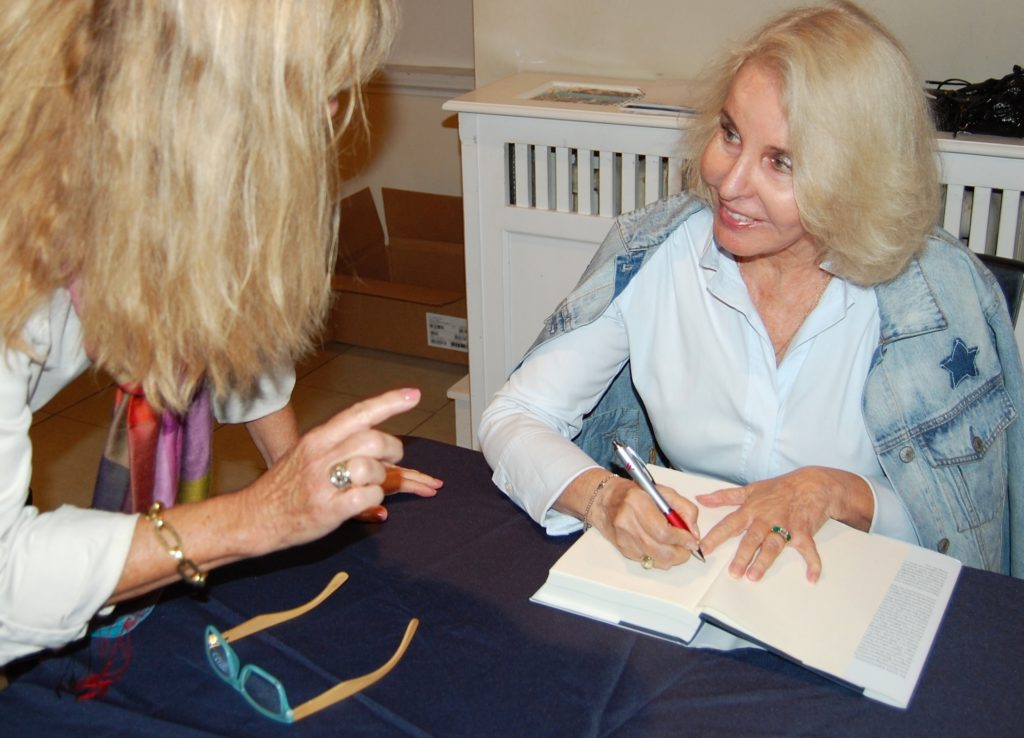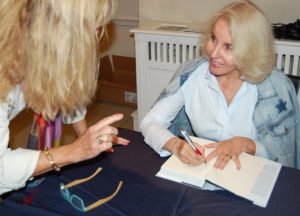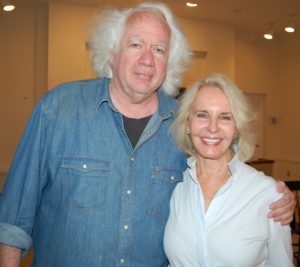Sally Quinn Talks About ‘Finding Magic’
By • September 18, 2017 One Comment 2042

Whoever thought that religion was a cut-and-dried thing never met Sally Quinn.
Quinn, a Georgetown resident, recently published “Finding Magic: A Spiritual Memoir,” a chronicle of her search for meaning. On Sunday, Sept. 17, at St. John’s Episcopal Church on O Street NW, the author spoke with fellow writer and friend Leon Wieseltier, who wrote the book “Kaddish.”
The end product was not what Quinn set out to do at the beginning. Known for her website OnFaith, a project she worked on at the Washington Post, she wanted to write a book about how she — a person who considered herself an atheist for a number of years — was challenged to know a lot more about religion than she did before she sought to fill a hole in the newspaper’s coverage.
However, when her husband, former Washington Post editor Ben Bradlee, died in October of 2014, she decided two weeks later to write a different story. “I need to write this,” she said to herself.
The result is a book that covers Bradlee’s decline and death. “It was very cathartic and I had to get it out of my system,” Quinn said.
“Finding Magic” is separated into three parts: magic, mystery and meaning. Quinn spoke about her grappling with God, religion and practices. People should avoid describing her path as a spiritual journey, she said. She also doesn’t want to be seen as a seeker, because she wasn’t searching for anything. She called what she went through “a journey of self-discovery.”
Explaining that she created a religion of her own, Quinn admitted that her way of honoring the divine is not something religion experts would approve of. Her approach is to cherry-pick in religion. “That’s what works for me,” she said.
Believing in the divine wasn’t a constant aspect of her life. When Quinn was a child, she was taught to say her prayers every night. But when she found out about the Holocaust, she asked her father if God knew about the genocide of the Jewish people that took place in World War II. Her father said that God did know about it, and that there is a sense of mystery in connection with God and that historical fact.
This answer “completely devastated” her. At four years old, she felt like she fit the description of an atheist, but didn’t hear of the word until she was 13. Quinn didn’t tell anyone in her family about her stance on God in those early years. “I was too embarrassed,” she said.
Despite her identification with atheism for a number of years, Jon Meacham, who became a co-moderator of OnFaith, asked her how she could be angry at God if she didn’t believe in God. She does believe now that she was touched by something divine, but the idea of a personal god that allows suffering is not something she can be on board with.
Writing the book was also a way to find an answer to the meaning of life. For her, loving someone is what gives life meaning. The book ends one year after Bradlee’s death and chronicles the formal end of Quinn’s mourning. She never feels alone.
“I feel him right now at this room with me,” she said.

Georgetowner Sally Quinn signs her book, “Finding Magic,” at St. John’s Church on O Street. Photo by Robert Devaney.

Leon Wieseltier and Sally Quinn at a talk on her book, “Finding Magic,” at St. John’s Church on O Street. Photo by Robert Devaney.


“The book ends one year after Bradlee’s death and chronicles the formal end of Quinn’s mourning. She never feels alone.
“I feel him right now at this room with me,” she said.”
O-kay. So let me get this straight: she thinks she’s over his death, but she still thinks he’s there with her. Clearly she hasn’t come to terms with the fact that he’s dead.